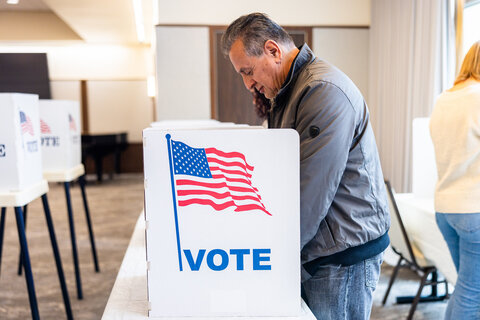Number five in our series of occasional roundups on election law and policy:
As polls closed and began to be tabulated, “rigged election” talk suddenly fell quiet. [I’m interviewed at StateLine.] Later, as the absurdly slow count of mail votes on the West Coast put off the counting of many millions of Democratic-leaning votes, both simple misunderstandings and flimsy fraud theories proliferated on left and right. [Stuart Thompson, New York Times; for comparison, latest popular vote count via Wikipedia with most West Coast votes now tabulated.] No, Elon Musk’s StarLink satellite system did not somehow steal votes. [Associated Press fact check.]
President-elect Trump calls for investigation of Iowa poll unfavorable to him. [Adam Steinbaugh on Bluesky.] Trump also sues CBS claiming that the way it edited a 60 Minutes interview with Kamala Harris violated a Texas unfair commerce act. [Mike Masnick, Eugene Volokh.]
Did a young Australian staffer walk into a DC polling place and get handed a ballot to vote in the federal election, though he was a noncitizen of the US? He seems to want his audience to think so. I investigate in a Bluesky thread.
“Blue Dogs Propose New Task Force to Look at ‘Winner-Take-All’ Election System— the bipartisan task force would investigate structural reforms like multimember districts and adding more House members in an effort to address growing polarization and distrust of Congress.” [NOTUS.]
Native areas delivered the votes that saved Alaska’s pioneering all-party primary reform. [Pascal Sabino, Bolts.]

